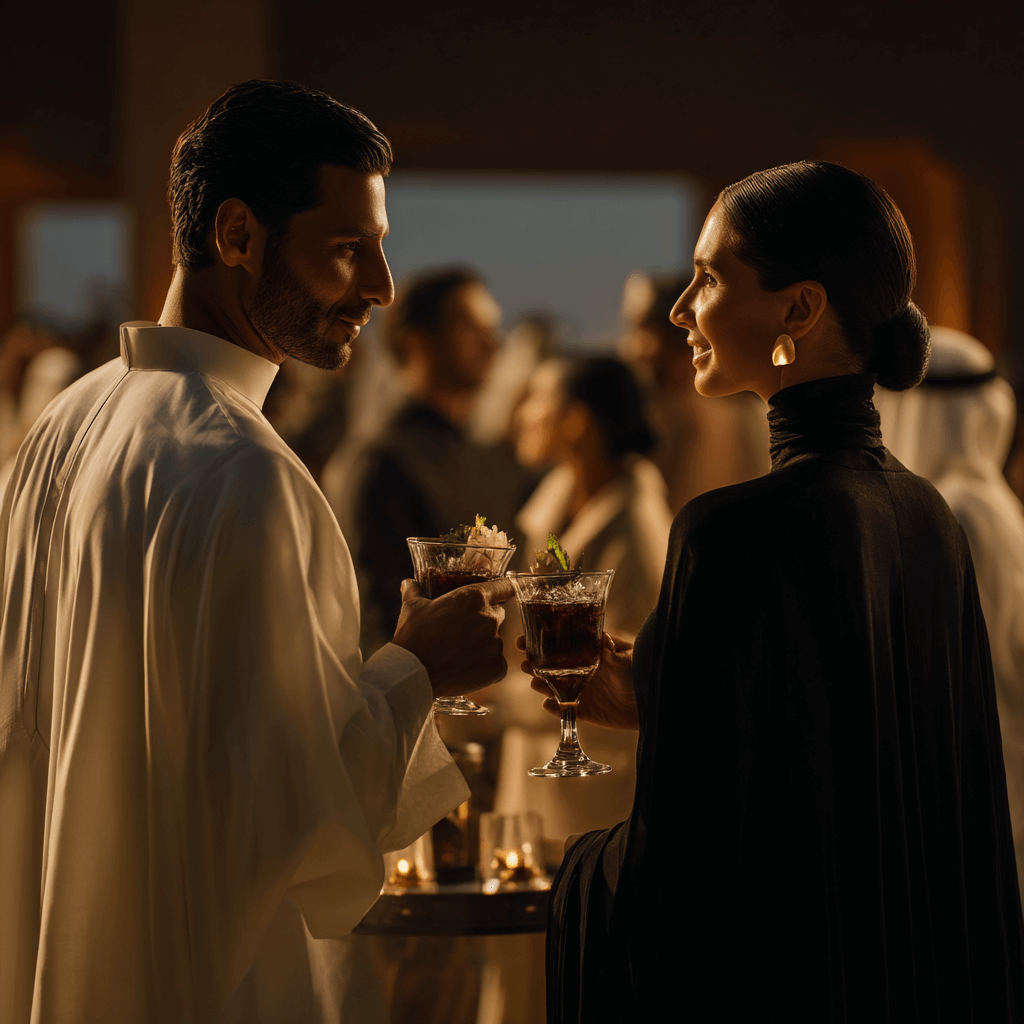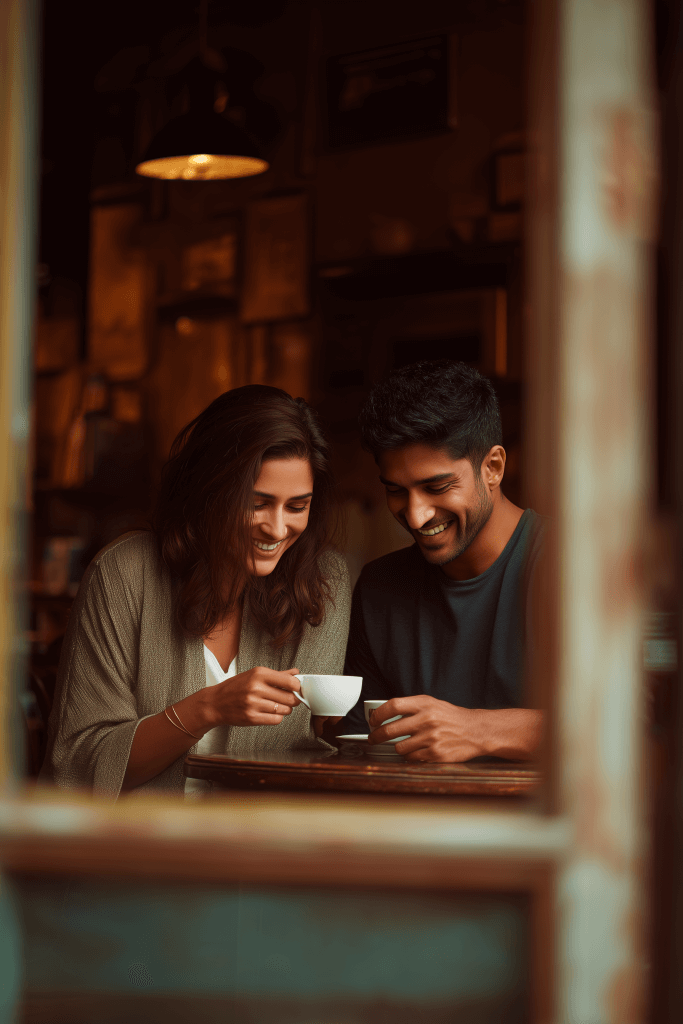Randki w społecznościach arabskich kształtowane są przez wyjątkowe połączenie oczekiwań kulturowych, wartości religijnych i tradycji społecznych. Zrozumienie, w jaki sposób Arabowie w randkach podchodzą do relacji, wymaga spojrzenia zarówno na zakorzenione zwyczaje, jak i na to, w jaki sposób nowoczesne życie wpłynęło na romans w regionie i diasporze arabskiej. Chociaż doświadczenia różnią się w zależności od kraju, pochodzenia i jednostki, pewne motywy, takie jak zaangażowanie, szacunek i akceptacja rodziny, pozostają centralne w wielu społeczeństwach arabskich.
Kulturalne tło randkowania
Kultura arabska przywiązuje dużą wagę do szacunku, godności i odpowiedzialności emocjonalnej w relacjach. Tradycyjnie randki były ściśle związane z intencją małżeństwa, zwłaszcza w bardziej konserwatywnych społecznościach. Udział rodziny często odgrywał decydującą rolę, zapewniając, że związek jest zgodny ze wspólnymi wartościami i oczekiwaniami społecznymi.
W wielu regionach, w tym w miejscach takich jak Egipt i inne kraje Afryki Północnej lub Bliskiego Wschodu, normy randkowe mogą się znacznie różnić w zależności od tego, jak miejskie lub tradycyjne jest środowisko. Współczesne wpływy, edukacja za granicą i ekspozycja na globalną kulturę randkową stworzyły bardziej elastyczne podejście wśród młodszych pokoleń, choć korzenie kulturowe pozostają znaczące.
Rola religii i wartości
Ponieważ wielu Arabów identyfikuje się jako muzułmanie, wartości religijne kształtują etykietę randkową, granice i oczekiwania. Dla niektórych muzułmańskich mężczyzn i kobiet randkowanie jest traktowane z ostrożnością i skromnością. Inni mogą podchodzić do tego w bardziej nowoczesny sposób, ale nadal priorytetowo traktują szczerość i intencjonalność. Kiedy muzułmańskie przekonania są centralne w życiu człowieka, randkowanie ma tendencję do podkreślania uczciwości, zaangażowania i szacunku dla rodzinnej godności.
Zrozumienie arabskich mężczyzn w związkach
Mężczyźni z krajów arabskich mogą podchodzić do randek inaczej, w zależności od ich wychowania, przekonań religijnych oraz ekspozycji na różne kultury. Niektórzy priorytetowo traktują tradycyjne ramy, przywiązując dużą wagę do zaangażowania i długoterminowej kompatybilności. Inni, zwłaszcza ci, którzy dorastali lub mieszkają w krajach zachodnich, mogą łączyć wartości kulturowe z bardziej otwartymi stylami randkowania.
Niezależnie od różnic, wielu mężczyzn pochodzenia arabskiego przywiązuje wagę do lojalności, poczucia bezpieczeństwa emocjonalnego oraz roli wspierającego partnera. Często również mężczyzna muzułmanin lub świecki partner Arab przywiązuje wagę do jasności i powagi na początku związku, co wynika z norm kulturowych, które zachęcają do celowej zażyłości romantycznej.
Oczekiwania Rodzinne i Ich Wpływ
Akceptacja rodziny zajmuje ważne miejsce w kulturze arabskiej. Dla wielu osób przedstawienie partnera rodzinie jest ważnym krokiem, a związki często rozwijają się przy wiedzy lub zaangażowaniu rodziny. Jest to związane z szerszymi wartościami dotyczącymi jedności, odpowiedzialności i ciągłości kulturowej.
Ponieważ honor rodzinny jest ściśle związany z zachowaniem, otwarta randka może być dla niektórych osób bardziej delikatna. Zaangażowanie rodziny może być wspierające, ale czasem też powodować presję. Zrozumienie tej dynamiki jest niezbędne podczas randkowania z osobą pochodzącą z kultury arabskiej, ponieważ wpływa na komunikację, timing i otwartość emocjonalną.
Jak Modernizacja Zmieniła Normy Randkowania
Choć tradycje są silne, modernizacja, globalna mobilność i zmieniające się oczekiwania wobec płci przekształciły sposób, w jaki Arabowie podchodzą do randkowania. Młodsze pokolenia częściej poznają się przez media społecznościowe, życie uniwersyteckie lub kręgi zawodowe. Te zmiany stworzyły więcej przestrzeni dla osobistego wyboru, głębszej kompatybilności emocjonalnej i wartości wspólnych, które wykraczają poza obowiązki kulturowe.
W dużych miastach i w diasporze arabskiej randkowanie może być bardziej otwarte i swobodne. Ludzie często lawirują pomiędzy oczekiwaniami kulturowymi a osobistymi pragnieniami, poszukując równowagi, która szanuje ich pochodzenie, a jednocześnie przyjmuje nowoczesne style relacji.
Komunikacja i emocjonalne połączenie
W relacjach międzykulturowych komunikacja odgrywa kluczową rolę. Wielu Arabów ceni głębię emocjonalną, lojalność i stabilność. Okazywanie zrozumienia dla wpływów kulturowych lub religijnych pomaga budować zaufanie i zmniejsza nieporozumienia. Bycie otwartym na dyskusję na temat oczekiwań związanych z zaangażowaniem, rolami i granicami jest niezbędne dla zdrowej relacji.
Nawigacja po różnicach i budowanie kompatybilności
Randkowanie z kimś z innej kultury często wymaga cierpliwości i gotowości do zrozumienia różnych perspektyw. W przypadku partnerów z krajów arabskich, niuanse kulturowe dotyczące oczekiwań płciowych, okazywania uczuć lub tempa relacji mogą różnić się od norm zachodnich.
Zdrowe relacje zwykle stają się silniejsze, gdy obaj partnerzy:
- szanujmy pochodzenie się wzajemnie
- komunikuj się otwarcie
- wykazuj ciekawość bez założeń
- pocałujmy wspólne wartości
- rozumiejąco traktuj różnice
Kiedy Tradycja Spotyka Osobistą Wolność
Wielu młodych dorosłych w społecznościach arabskich dzisiaj na nowo definiuje, czym dla nich jest randkowanie. Podczas gdy niektórzy trzymają się kurczowo tradycji, inni tworzą osobiste zrównoważenie między kulturą a niezależnością. Ta elastyczność jest szczególnie widoczna w globalnych miastach i wśród młodzieży z wyższym wykształceniem, gdzie randkowanie jest postrzegane jako część rozwoju osobistego, eksploracji emocjonalnej i budowania tożsamości.
Zmiany społeczne zachęciły również wiele kobiet i mężczyzn do podejmowania relacji opartych na dopasowaniu, a nie wyłącznie na oczekiwaniach kulturowych. Jednocześnie, miłość, lojalność i silne poczucie partnerstwa pozostają podstawowymi wartościami w całym regionie.
Wnioski
Randki w kulturze arabskiej są bogate w tradycję, ale nieustannie ewoluują. Arabowie w randkach poruszają się po krajobrazie ukształtowanym przez wartości, zaangażowanie rodziny, przekonania osobiste oraz wpływ nowoczesnych stylów życia. Niezależnie od tego, czy są związani z konserwatywnymi zwyczajami, czy bardziej współczesnymi podejściami, Arabowie często priorytetowo traktują emocjonalną szczerość, szacunek i długoterminową kompatybilność.
Zrozumienie tych warstw kulturowych pomaga budować silniejsze, bardziej znaczące relacje międzykulturowe. Dzięki świadomości i otwartości, randkowanie z osobami z różnych środowisk kulturowych staje się okazją do nauki, rozwoju i budowania autentycznych więzi, jednocześnie szanując to, co czyni każdą osobę wyjątkową.













